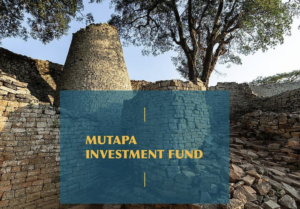UNCOVERING THE TRUTH: HOW ZANU PF’S ALLEGED DECEPTION DEEPENS ZIMBABWE’S UNEMPLOYMENT CRISIS
In Zimbabwe, a nation marred by economic challenges and political controversies, the ruling party ZANU PF stands accused of exacerbating the unemployment crisis through alleged mismanagement and deceit. According to official statements, the unemployment rate in the country is pegged at a concerning nineteen percent. However, this figure, released by the ZANU PF-aligned and criticized Zimbabwe National Statistics Agency (ZIMSTAT), has been met with skepticism and accusations of being part of a larger propaganda effort.
The heart of the issue lies in the stark contrast between the official narrative and the lived experiences of Zimbabweans. For decades, the people of Zimbabwe have faced oppression and terror at the hands of what is described as a “pestilential, parasitic, criminal, and illegitimate” regime. The ZANU PF, accused of being preoccupied with plundering and looting both fiscal and natural resources, has allegedly deprived citizens of essential service delivery. This situation, critics argue, is a deliberate strategy to maintain power and pursue a one-party state, leading to what is termed as “state paralysis.”
The question arises: why would a government, already under scrutiny for its handling of the country’s welfare, resort to manipulating unemployment statistics? The answer, according to observers, is rooted in a desire to mask the true extent of the unemployment crisis, which is arguably a direct consequence of the ruling party’s policies and governance style. By presenting a more favorable employment scenario, ZANU PF hopes to sway public opinion and secure votes, despite the reality on the ground.
This tactic of alleged deceit is not just about numbers; it’s a reflection of a deeper political malaise. The ruling party’s grip on power is maintained through a blend of fear, misinformation, and the erosion of democratic institutions. ZIMSTAT, criticized for being partisan, politicized, unprofessional, and incompetent, is seen as a tool in this machinery, churning out data that serves the interests of the ruling elite rather than reflecting the true state of affairs.
Critics argue that the solution to Zimbabwe’s unemployment woes lies in a change of guard. They envision a future where a vibrant, innovative, resolute, and resilient opposition takes the reins, reversing the current trends through policies that respect property rights and human rights. Such a shift, they believe, would restore transparency, accountability, and the rule of law, leading to economic revival and job creation.
At the core of this debate is the fundamental right of the people to be employed and to live in a state where their welfare is the priority. The focus on employment statistics, while important, misses the larger picture – the need for systemic change that addresses the root causes of unemployment and economic stagnation. The citizens of Zimbabwe, it is argued, do not need manipulated figures; they need real opportunities and a government that is genuinely committed to their prosperity.
As Zimbabwe grapples with these challenges, the role of international observers and allies becomes crucial. There is a growing call for global attention to the plight of the Zimbabwean people, urging support for a democratic transition that can usher in a new era of governance, one that is transparent, accountable, and, most importantly, responsive to the needs of its citizens.
In conclusion, the controversy surrounding ZANU PF’s handling of the unemployment issue in Zimbabwe is more than just a dispute over statistics. It’s a symptom of a deeper political and economic crisis, one that requires urgent attention and action from both national leaders and the international community. For Zimbabweans, the path to recovery and prosperity lies in a government that is truly of the people, by the people, and for the people.



